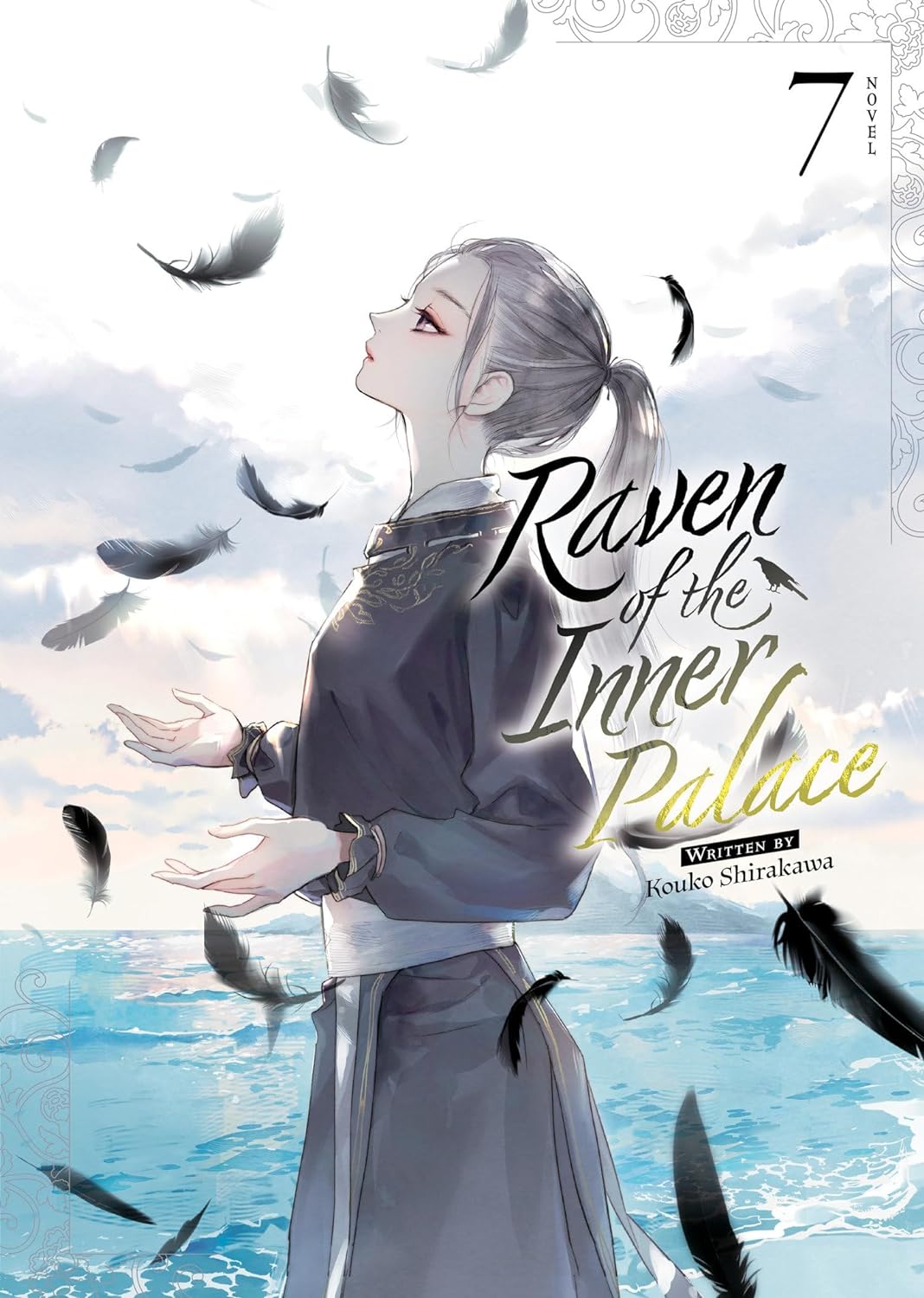By Kouko Shirakawa and Ayuko. Released in Japan as “Kōkyū no Karasu” by Shueisha Orange Bunko. Released in North America by Airship. Translated by Amelia Mason. Adapted by T. Burke.
Probably the most startling thing about this final volume of Raven of the Inner Palace is how little Jusetsu is in it, and when she appears, it’s not really her actions that save the day, just her actual presence. She’s spent her life being a vessel for a higher power, and being involved in a God vs. God battle is something that she has to get dragged into or else bad things will happen. But it’s not what she herself wants. Honestly, I think she’s still flailing around trying to figure out what she wants until this final volume, and it’s not saving the day and unleashing her inner raven. Nor is it headed back to the palace to deal with the unstated romantic feelings she and Koshun have dealt with since Book 1 – that ship has run aground already. That said, we do get to see the resolution of a ship, sort of – the trouble is that it’s Jusetsu/merchant marine life. Which, refreshingly, is not what anyone was expecting.
This book is essentially divided into two plotlines, one on and going to the island, and the other up in the mountains. They’re actually mostly completely separate. We already know about Jusetsu, who needs to somehow get past an underwater volcano exploding to get to the island so that she can reunite the two halves of the raven. She’s got to do this despite the turtle god resorting to threats, more threats, and possession in order to win the day. The other half of the book is still drenched in Saname family drama, which we already got a heaping helping of in the last book. Ko has been sent by his father to use the mountain tries to incite a rebellion, which won’t succeed, but will mean that they’ll have to kill Jusetsu in order to calm everyone down. If you think this makes no sense, well, it doesn’t make much sense to Ko either, but it’s hard to go against Daddy.
I’ll be honest, this book was not quite the big finale I was hoping for. As noted, Jusetsu is just present rather than active for the battle, which makes sense but is dramatically unsatisfying. Likewise, there’s no rebellion, because in the end the stability of the country is more important than an old man trying one last time to exercise his power. And yes, Koshun has almost been the co-protagonist of the series, and so seeing him so uninvolved in the finale – he doesn’t leave the palace – makes sense but is dramatically unsatisfying, the second time I’ve typed that. I did like Jusetsu’s career choice – she can’t stay in the palace, after all, especially not with an Empress and two kids from other wives – and so traveling the world and seeing other cultures makes sense. And I’m delighted she takes her entourage with her – I love Jiujiu.
So yes, something of a mixed bag finale, but overall this was a good series, and a worthy addition to “intrigue in the inner court of the emperor” genre.


Speak Your Mind